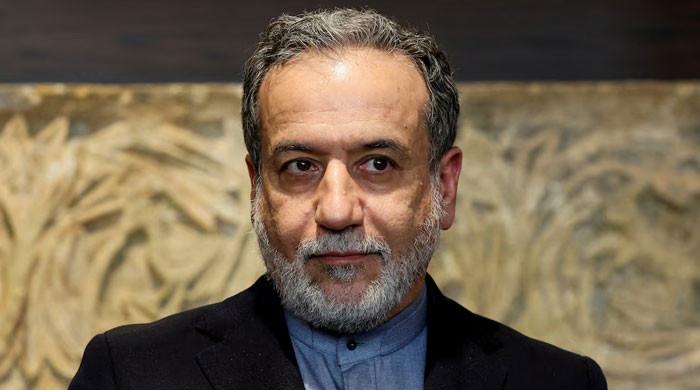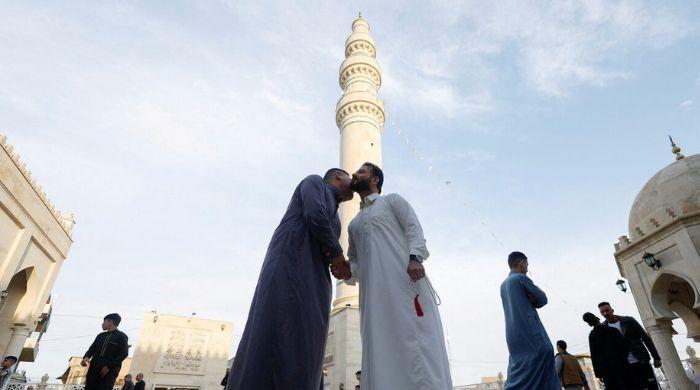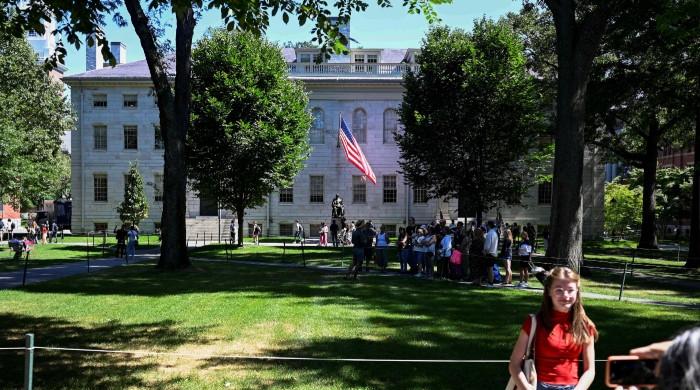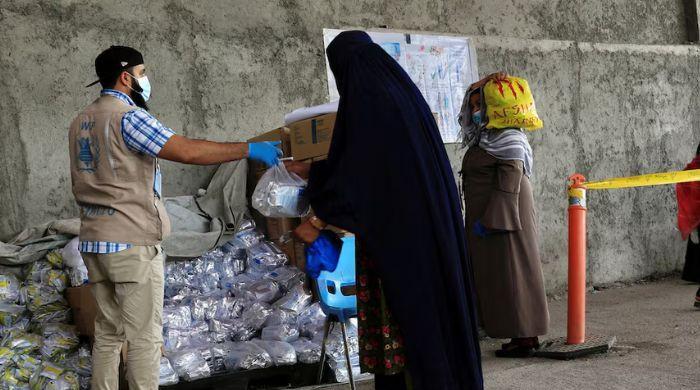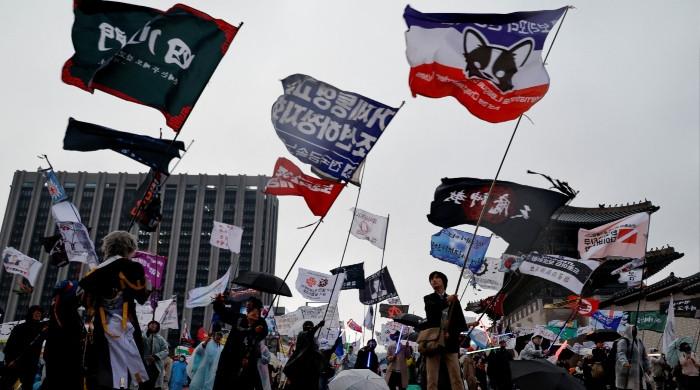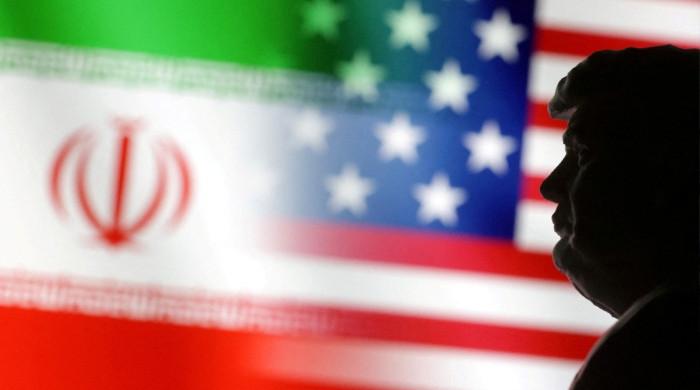Altaf Hussain to stand trial for three weeks in hate speech case
Scotland Yard had charged Hussain with terrorism offence for his controversial speech relayed live from UK to Karachi
January 27, 2022

- Scotland Yard had charged Hussain with terrorism offence for his controversial speech relayed live from UK to Karachi.
- Hussain has denied the charge and says he will defend himself at the trial and during the cross-examination.
- Altaf Hussain had written to CPS that his trial should not go ahead because he is "physically and mentally unfit to stand terrorism trial in January 2022" but his application was rejected.
LONDON: The leader and founder of the Muttahida Qaumi Movement (MQM) Altaf Hussain is set to go on trial at the Kingston Crown Court from Monday, January 31, for approximately three weeks in the hate speech case brought by the Crown Prosecution Service (CPS).
Scotland Yard had charged Hussain in October 2019 with a terrorism offence in a case related to his controversial speech relayed live from the United Kingdom to his followers in Pakistan on August 22, 2016.
The MQM founder, 68, was investigated by detectives from the Met Police's Counter-Terrorism Command over his speech that caused riots in Karachi and attacks on news channels. He was arrested on June 11, 2019, on suspicion of intentionally encouraging or assisting offences contrary to Section 44 of the Serious Crime Act 2007. He was released on bail and subsequently charged.
Hussain will be defended by his lawyers at Corker Binning against the Crown’s lawyers. Hussain has denied the charge and says he will defend himself at the trial and during the cross-examination.
"Altaf Hussain [...], of Abbey View, Mill Hill, NW7, was charged under section 1(2) of the Terrorism Act (TACT) 2006 with encouraging terrorism," the Met Police had said.
According to the Metropolitan Police, Altaf Hussain "On August 22, 2016, published a speech to crowds gathered in Karachi, Pakistan which were likely to be understood by some or all of the members of the public to whom they were published as a direct or indirect encouragement to them to the commission, preparation or instigation of acts of terrorism and at the time he published them, intended them to be so encouraged, or was reckless as to whether they would be so encouraged."
According to section 1(2) of the Terrorism Act 2006, a person commits an offence if he (a) he publishes a statement to which this section applies or causes another to publish such a statement; and (b) at the time he publishes it or causes it to be published, he (i) intends members of the public to be directly or indirectly encouraged or otherwise induced by the statement to commit, prepare or instigate acts of terrorism or Convention offences; or (ii) is reckless as to whether members of the public will be directly or indirectly encouraged or otherwise induced by the statement to commit, prepare or instigate such acts or offences.
Under section 1(7) of the same act, a person found guilty of an offence under this section shall be liable (a) on conviction on indictment, to imprisonment for a term not exceeding [15 years] or to a fine, or to both; (b) on summary conviction in England and Wales, to imprisonment for a term not exceeding 12 months or to a fine not exceeding the statutory maximum, or to both; (c) on summary conviction in Scotland or Northern Ireland, to imprisonment for a term not exceeding 6 months or to a fine not exceeding the statutory maximum, or to both.
Ahead of the trial, Hussain had written to the CPS stating that his trial should not go ahead because he is "physically and mentally unfit to stand terrorism trial in January 2022" but his application was rejected.
Hussain wrote to the CPS that he had recently suffered from COVID-19 and went through an extremely difficult health situation that has affected his health and state of mind overall, therefore, the trial should be cancelled and the case dropped.
The MQM leader had spent nearly a month in Barnet Hospital from mid-December last year to January 12, 2021, after being taken in an ambulance for suffering "serious" COVID-19 symptoms.




